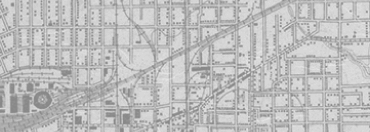


Back
T40 Brief: Jack Ruby (Rubenstein) Appellant vs. the State of Texas Appellee
Brief: Jack Ruby (Rubenstein) Appellant vs. the State of Texas Appellee. Dated June 15, 1966, only two days after Ruby was declared sane at his sanity hearing, this appeal was written and filed by Joe Tonahill and Emmit Colvin. The brief details all the ways that the defense lawyers believed the judge and prosecution failed to provide Jack Ruby a fair trial. Tonahill and Colvin described every objection in detail and in summary, ultimately requesting that the guilty verdict passed on Ruby at his murder trial in 1964 be overturned.This photocopy totals 269 pages and includes copies of Exhibits A - D:Exhibit A - Pages 177 - 198 of The Kennedy Assassination and the American Public: Social Communication in Crisis, edited by Bradley S. Greenberg and Edwin B. Parker, published by Stanford University Press, 1965. The excerpt is a chapter titled, "Reactions to the Assassination in Dallas," by Charles M. Bonjean, Richard J. Hill, and Harry W. Martin.Exhibit B - Seven pages of an article from Journalism Quarterly, Vol. 41, No. 3 (Summer 1964), University of Minnesota, Minneapolis, (c) 1964. The article is titled, "News Diffusion: A Test of the Regularity Hypothesis," by Richard J. Hill and Charles M. Bonjean.Exhibit C - An outline that details why Judge Joe B. Brown was disqualified, why the appellant was denied due process, and why the conviction was void.Exhibit D - Photocopies of two letters from Judge Brown. The first letter, addressed to Sam Stewart, is a single page typed on white letterhead paper, and is dated March 12, 1965. In it, Judge Brown writes his book editor to explain why more progress has not been made on the book about Jack Ruby and the Ruby trial due to personal schedules and conflicts as well as the defendant appealing his verdict to the Texas Court of Criminal Appeals. Brown asks for "indulgence and patience" from Mr. Stewart because "we may have a much, much better book than we had anticipated; but I do not want to put myself in the position of being disqualified." The second letter, dated June 21, 1965, is addressed to Judge Dallas A. Blankenship at the First Administrative Judicial District in Dallas, Texas. In it, Judge Brown recuses himself "from any further duty in the case styled The State of Texas vs. Jack Ruby."
T40 Brief: Jack Ruby (Rubenstein) Appellant vs. the State of Texas Appellee
06/15/1966
Paper
11 1/8 × 8 9/16 × 1 3/8 in. (28.3 × 21.7 × 3.5 cm)
The Sixth Floor Museum at Dealey Plaza Collection/Estate of Melvin Belli
2010.027.0643
The Museum recorded an oral history with defense attorney Joe Tonahill in 1996. He passed away in 2001. - Stephen Fagin, Curator
Judge Joe B. Brown's infamous book on the Jack Ruby trial, referenced in this document, was never published during the judge's lifetime. Joe B. Brown died of a heart attack on February 20, 1968. Decades later, his son, the late Judge Joe B. Brown, Jr. -- himself a district court judge in Dallas from 1988 to 1996 -- worked with psychologist and author Dr. Diane Holloway to edit his father's unpublished manuscript. The end result, coupled with Warren Commission testimony and new psychological commentary, was published as Dallas and the Jack Ruby Trial: Memoir of Judge Joe B. Brown, Sr. in 2001.The judge's son, Judge Joe B. Brown, Jr., recorded an oral history with the Museum in 2004. - Stephen Fagin, Curator

T40 Brief: Jack Ruby (Rubenstein) Appellant vs. the State of Texas Appellee
Brief: Jack Ruby (Rubenstein) Appellant vs. the State of Texas Appellee. Dated June 15, 1966, only two days after Ruby was declared sane at his sanity hearing, this appeal was written and filed by Joe Tonahill and Emmit Colvin. The brief details all the ways that the defense lawyers believed the judge and prosecution failed to provide Jack Ruby a fair trial. Tonahill and Colvin described every objection in detail and in summary, ultimately requesting that the guilty verdict passed on Ruby at his murder trial in 1964 be overturned.This photocopy totals 269 pages and includes copies of Exhibits A - D:Exhibit A - Pages 177 - 198 of The Kennedy Assassination and the American Public: Social Communication in Crisis, edited by Bradley S. Greenberg and Edwin B. Parker, published by Stanford University Press, 1965. The excerpt is a chapter titled, "Reactions to the Assassination in Dallas," by Charles M. Bonjean, Richard J. Hill, and Harry W. Martin.Exhibit B - Seven pages of an article from Journalism Quarterly, Vol. 41, No. 3 (Summer 1964), University of Minnesota, Minneapolis, (c) 1964. The article is titled, "News Diffusion: A Test of the Regularity Hypothesis," by Richard J. Hill and Charles M. Bonjean.Exhibit C - An outline that details why Judge Joe B. Brown was disqualified, why the appellant was denied due process, and why the conviction was void.Exhibit D - Photocopies of two letters from Judge Brown. The first letter, addressed to Sam Stewart, is a single page typed on white letterhead paper, and is dated March 12, 1965. In it, Judge Brown writes his book editor to explain why more progress has not been made on the book about Jack Ruby and the Ruby trial due to personal schedules and conflicts as well as the defendant appealing his verdict to the Texas Court of Criminal Appeals. Brown asks for "indulgence and patience" from Mr. Stewart because "we may have a much, much better book than we had anticipated; but I do not want to put myself in the position of being disqualified." The second letter, dated June 21, 1965, is addressed to Judge Dallas A. Blankenship at the First Administrative Judicial District in Dallas, Texas. In it, Judge Brown recuses himself "from any further duty in the case styled The State of Texas vs. Jack Ruby."
T40 Brief: Jack Ruby (Rubenstein) Appellant vs. the State of Texas Appellee
06/15/1966
Court records
Jack Ruby trial
Transcripts
Trials
Appeal
Ruby, Jack
Tonahill, Joe H.
Brown, Judge Joe B.
Belli, Melvin
Colvin, Emmett, Jr.
Criminal District Court No. 3
Dallas County Criminal Courts Building
Dallas County District Attorney's Office
State of Texas
Dallas
Paper
11 1/8 × 8 9/16 × 1 3/8 in. (28.3 × 21.7 × 3.5 cm)
The Sixth Floor Museum at Dealey Plaza Collection/Estate of Melvin Belli
2010.027.0643
The Museum recorded an oral history with defense attorney Joe Tonahill in 1996. He passed away in 2001. - Stephen Fagin, Curator
Judge Joe B. Brown's infamous book on the Jack Ruby trial, referenced in this document, was never published during the judge's lifetime. Joe B. Brown died of a heart attack on February 20, 1968. Decades later, his son, the late Judge Joe B. Brown, Jr. -- himself a district court judge in Dallas from 1988 to 1996 -- worked with psychologist and author Dr. Diane Holloway to edit his father's unpublished manuscript. The end result, coupled with Warren Commission testimony and new psychological commentary, was published as Dallas and the Jack Ruby Trial: Memoir of Judge Joe B. Brown, Sr. in 2001.The judge's son, Judge Joe B. Brown, Jr., recorded an oral history with the Museum in 2004. - Stephen Fagin, Curator










